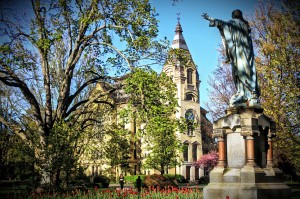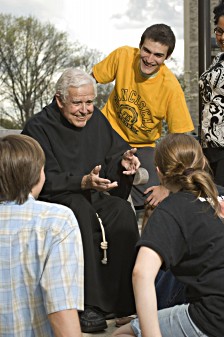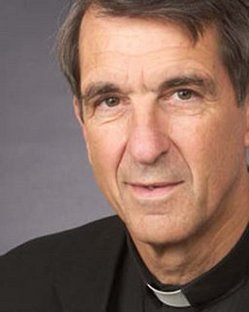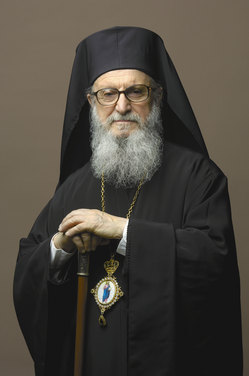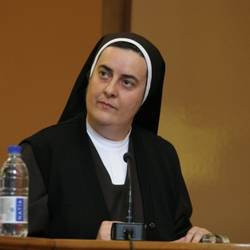 Sister Mary Melone, a Franciscan Sisters of Blessed Angelina, born in 1964, is the next Rector of the Faculty of Theology of the Pontifical University Antonianum. The venerable Antonianum is run by the Order of Friars Minor.
Sister Mary Melone, a Franciscan Sisters of Blessed Angelina, born in 1964, is the next Rector of the Faculty of Theology of the Pontifical University Antonianum. The venerable Antonianum is run by the Order of Friars Minor.
In recent history of this Roman pontifical university, Sister Melone is the first woman to be appointed a dean, and now the first woman to become a rector of a pontifical university in Rome. Cardinal Zenon Grocholewski, prefect of the Congregation for Catholic Education appointed Melone to a term lasting from 2014-2017. She is an expert on St. Anthony of Padua, and other points in Franciscan theology.
May Saint Anthony of Padua intercede for Sister Mary Melone’s intentions.
When Sr. Melone was elected the dean of the Antonianum she gave an interview to L’Osservatore Romano where she said:
The approach of a woman: “I don’t give much importance to these kinds of labels, female theology. Above all, I don’t like comparisons although I recognize that in the past there may have been a reason for making comparisons. Maybe there is one today as well, I don’t know. More space definitely needs to be given to women. The reference to female theology does not really fit with my vision of things: all that exists is theology. Theology as research, as a focus on mystery, as a reflection on this mystery. But precisely because this requires different sensitivities. A woman’s approach to mystery, the way in which she reflects on this mystery which offers itself and reveals itself, is certainly different from that of a man. But they do not contrast. I believe in theology and I believe that theology created by a woman is typical of a woman. It is different but without the element of laying claim to it. Otherwise it almost seems as though I am manipulating theology, when it is instead a field that requires honesty from the person who places him/herself before the mystery.”
More on women: “a reflection on this cannot be commensurate to the Church’s age as this reflects a development of thought that has gone on for hundreds of years. However, in my opinion a new space does exist and it is real. I also think it is irreversible, meaning that it is not a concession but a sign of the times from which there is no return. It is no pretense. I believe this depends a great deal on us women too. It is us who should get the ball rolling. Women cannot measure how much space they have in the Church in comparison to men: we have a space of our own, which is neither smaller nor greater than the space men occupy. It is our space. Thinking that we have to achieve what men have, will not get us anywhere. Of course, although the steps we take may be real, this does not mean the job is complete. A great deal more can be done but there is change, you can see it, feel it. I think that (my case aside) the election of a woman in a pontifical university is also proof this. The body who elected me was made up entirely of men!”
The Church does NOT need gender quotas? “No, it doesn’t need quotas, it needs collaboration. And collaboration needs to grow!”
